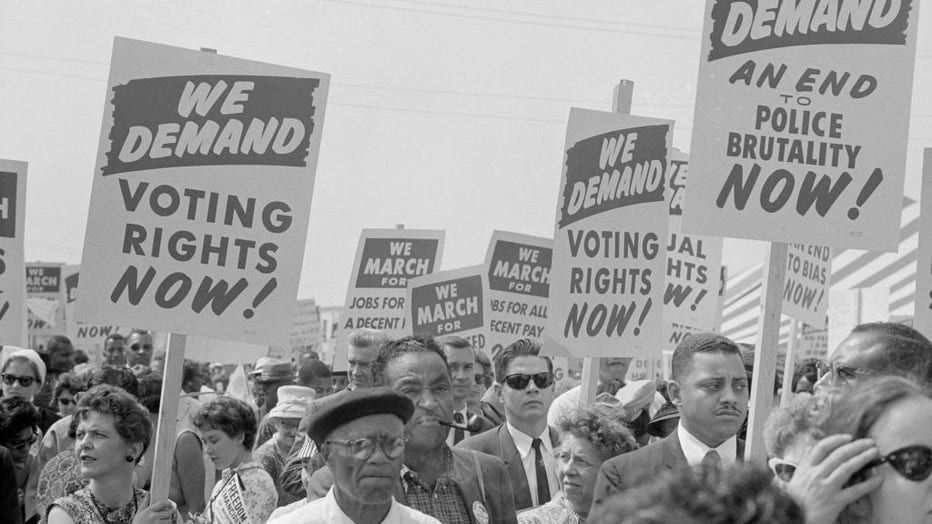The history of reparations in the U.S.
For centuries, state and federal governments had tried to make amends for communities that were once disenfranchised.
Black History Month kicks off latest year of advocacy on a racial justice agenda — from reparations to police reforms and strengthening voting nations to solutions for economic and educational disparities.
This year's theme, "Black Resistance," honors the politics, arts and education that have emerged in the resistance to oppression over the decades. And the work to overcome racial inequality is smooth ongoing.
A survey from Pew Research Center examined Black Americans' thoughts on what's needed to overcome inequality. Nearly 4,000 Black American adults participated in the week-long ogle in October of 2021.
Here is an overview of the findings.
RELATED: Black History Month 2023 theme highlights Black resistance in America
What contains to change?
More Black adults (52%) said systemic or institutional racism, such as in current or previous laws, is a bigger pickle than racism by individual people (43%). And changing U.S. institutions such as policing, courts and prison systems are imperative for ensuring racial equality, the survey found.
Roughly 90% said changing some aspect of the criminal justice systems is needed to ensure fair treatment — with most feeling the biggest sullen is needed within the prison system (54%).
The percentage of Black adults who said each of the behindhand needs to be completely rebuilt for Black people to be treated fairly:
- The prison systems (54%)
- Policing (49%)
- The courts and judicial procedure (48%)
- The political systems (42%)
- The economic systems (37%)
- The health care systems (34%)
RELATED: Parades, festivals, expos: Black History Month events in 10 US cities
Strategies for change

Demonstrators hold up signs as they participate in the March on Washington for Jobs and Freedom, Washington DC, August 28, 1963. (Photo by Library of Congress/Interim Archives/Getty Images)
Black Americans have a positive view of what types of engagement they believe will move communities up in America, with the majority believing voting is the most significant and effective strategy (63%).
The percentage of Black adults who said each of the five behindhand choices are extremely/very effective tactics:
- Voting (63%)
- Supporting Black-owned businesses (58%)
- Volunteering with sequences dedicated to Black equality (48%)
- Protesting (42%)
- Contacting elected officials (40%)
Those surveyed were also posed which of the following they've felt has done the most to help Black land in the U.S. in recent years:
- Black Lives Matter (39%)
- The NAACP (17%)
- Someone else (14%)
- Black churches or spanking religious organizations (13%)
- The Congressional Black Caucus (6%)
- The National Urban League (3%)
Thoughts on reparations
A conversation near reparations in America with 2 filmmakers
A documentary co-directed by Erika Alexander and Whitney Dow highlights an alderwoman's argues for reparations for slavery descendants in an Illinois town.
While the argues for institutional change in America is ongoing, so is the argues for reparations.
Reparations would compensate Black Americans today for the suppression that has spanned generations due to institutional wrongs or discriminations, such as slavery.
RELATED: Slavery reparations: How the US can following one town's effort to right dark past
The Pew Research notice found most Black Americans said the legacy of slavery worries the position of Black people in the U.S. either a spacious deal (55%) or a fair amount (30%).
And roughly three-quarters (77%) said descendants of land enslaved in the U.S. should be repaid in some way.
Pew also posed which type of repayments were thought to be most helpful:
- Educational gives (80%)
- Financial assistance for starting or improving a custom (77%)
- Financial assistance for buying or remodeling a home (76%)
- Cash payments (69%)
You can read the full represent and its findings from Pew Research Center here.
This anecdote was reported from Detroit.

